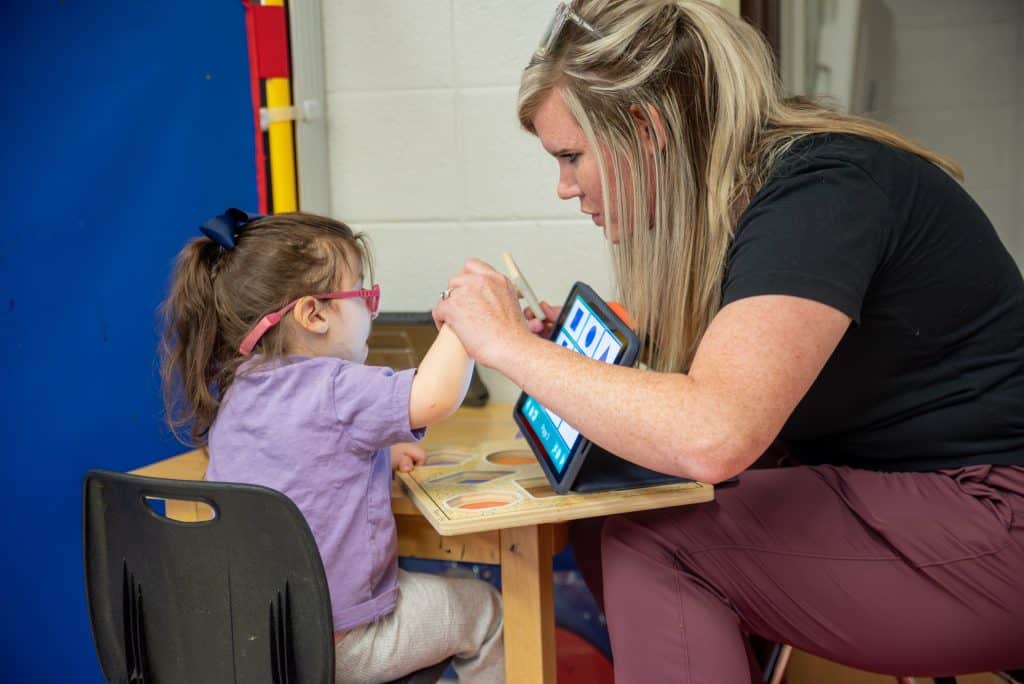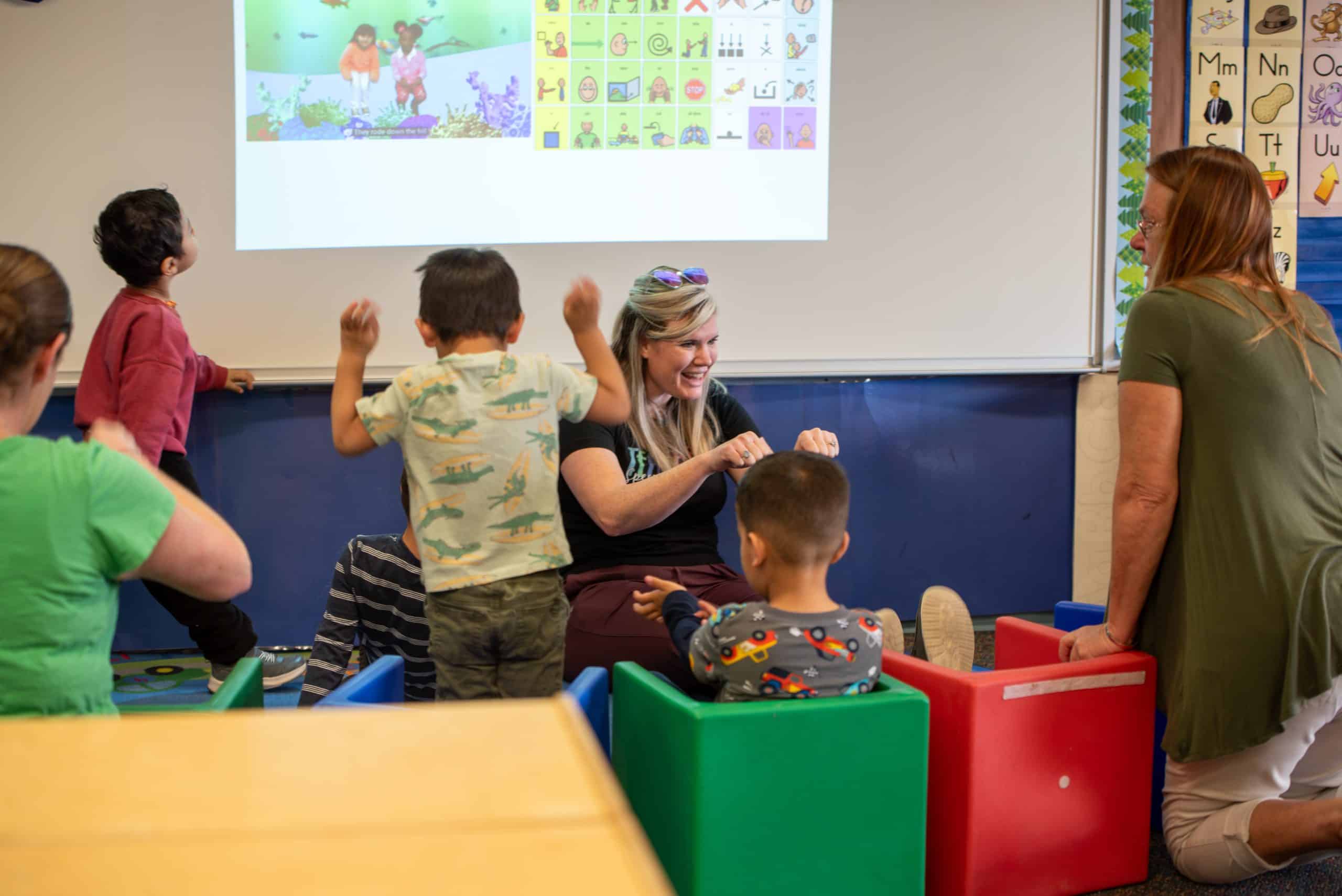At Spark! Discovery Preschool, the commitment to embracing diversity in early childhood education is paramount. Blair Hunter, the Special Education Teacher in the Significant Support Needs (SSN) classroom, exemplifies this commitment through her dedication and compassion.
A graduate of St. Vrain Valley Schools, Hunter began her career at Spark! as a part-time paraeducator while completing her Speech Pathology Assistant internship. “I initially intended to pursue pediatric nursing and was encouraged to explore pediatric pathology,” Hunter explains. “But once I started working in the SSN room, I realized that was my true calling.” Within a few months, Hunter pursued her Master’s degree in Early Childhood Special Education. “The joy of working with students and witnessing their growth inspired me to seek a program certificate for teaching individuals with significant needs and autism,” she shares.
Central to Hunter’s teaching philosophy is the belief that strong communication and personalized strategies are essential to meeting students’ diverse needs. Hunter implements daily routines by utilizing a variety of communication methods, such as visuals, written directions, and schedules. “It’s important to me that students are included and have the opportunity to participate in school activities, both during and outside of school hours,” she explains.

By emphasizing the importance of aligning her instructional planning with the school’s curriculum and STEM program, Hunter ensures that students receive customized versions of all activities. “Students are exposed to the same content. Depending on their goals, their participation will look different – some may be working on co-regulation during adult-directed activities, others on matching skills, receptive knowledge, or expressive verbal or Augmentative and Alternative Communication (AAC).”
Hunter understands the importance of involving parents and families in their child’s education to ensure comprehensive support within the classroom. “Just like working with students, each family will have different needs,” says Hunter. “I do my best to build relationships with families and support them as well. I think having that connection is vital to supporting students.” Understanding the significance of parent involvement and engagement, various communication channels are implemented. “Most of my students will not go home and talk about their day, so I try to find ways to make sure parents still have a connection with us,” she explains. Hunter also utilizes daily communication sheets, newsletters, in-person updates, and frequent pictures to keep parents informed.
Recognizing the diverse needs and backgrounds of her students, Hunter has taken the initiative to learn sign language and practice Spanish. Sign language has allowed her to enhance communication with students who may benefit from visual cues and alternative modes of expression; additionally, bolstering her Spanish skills provides her the opportunity to build stronger relationships with students and their families whose primary language is Spanish.
For Hunter, the most rewarding aspects of her role manifest in the daily victories and growth she witnesses in her students. “From a student’s first words to their developmental milestones, every achievement is a testament to their resilience and our collective efforts.”

